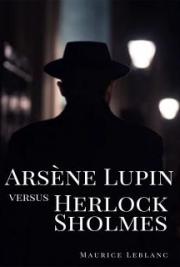20. The Bond That Unites
But he was not to be discouraged. "And after all this, after all you have suffered for my sake and your own, do you think you have a right to deny me the one desire of my heart? How can you reconcile it with your ideas of devotion, Luttra?" "My ideas of devotion look beyond the present, Mr. Blake. It is to save you from years of wearing anxiety that I consent to the infliction upon you of a passing pang."
He took a bold step forward. "Luttra, you do not know a man's heart. To lose you now would not merely inflict a passing pang, but sow the seeds of a grief that would go with me to the grave."
"Do you then"--she began, but paused blushing. Mrs. Daniels took the opportunity to approach her on the other side.
"My dear mistress," said she, "you are wrong to hold out in this matter." And her manner betrayed something of the peculiar agitation that had belonged to it in the former times of her secret embarassment. "I, who have honored the family which I have so long served, above every other in the land, tell you that you can do it no greater good than to join it now, or inflict upon it any greater harm than to wilfully withdraw yourself from the position in which God has placed you."
"And I," said another voice, that of the Countess de Mirac, who up to this time had held herself in the background, but who now came forward and took her place with the rest, "I, who have borne the name of Blake, and who am still the proudest of them all at heart, I, the Countess de Mirac, cousin to your husband there, repeat what this good woman has said, and in holding out my hand to you, ask you to make my cousin happy and his family contented by assuming that position in his household which the law as well as his love accords you."
The girl looked at the daintily gloved hand held out to her, colored faintly, and put her own within it.
"I thank you for your goodness," said she, surveying with half-sad, half-admiring glances, the somewhat pale face of the beautiful brunette.
"And you will yield to our united requests?" She cast her eye down at the spot where her father and brother had cowered in their shackles, and shook her head. "I dare not," said she.
Immediatey Mrs. Daniels, whose emotion had been increasing every moment since she last spoke, plunged her hand into her bosom and drew out a folded paper.
"Mrs. Blake," said she, "if you could be convinced that what I have told you was true, and that you would be irretrievably injuring your husband and his interests, by persisting in that desertion of him which your purpose, would you not consent to reconsider your determination, settled as it appears to be?"
"If I could be made to see that, most certainly," returned she in a low voice whose broken accents betrayed at what cost she remained true to her resolve. "But I cannot."
"Perhaps the sight of this paper will help you," said she. And turning to Mr. Blake she exclaimed, "Your pardon for what I am called upon to do. A duty has been laid upon me which I cannot avoid, hard as it is for an old servant to perform. This paper--but it is no more than just that you, sir, should see and read it first." And with a hand that quivered with fear or some equally strong emotion, she put it in his clasp.
The exclamation that rewarded the act made us all start forward. "My father's handwriting!" were his words.
"Executed under my eye," observed Mrs. Daniels.
His glance ran rapidly down the sheet and rested upon the final signature.
"Why has this been kept from me?" demanded he, turning upon Mrs. Daniels with sternness.
"Your father so willed it," was her reply. "'For a year' was his command, 'you shall keep this my last will and testament which I give into your care with my dying hands, a secret from the world. At the expiration of that time mark if my son's wife sits at the head of her husband's table; if she does and is happy, suppress this by deliberately giving it to the flames, but if from any reason other than death, she is not seen there, carry it at once to my son, and bid him as he honors my memory, to see that my wishes as there expressed are at once carried out.'"
The paper in Mr. Blake's hand fluttered.
"You are aware what those wishes are?" said he.
"I steadied his hand while he wrote," was her sad and earnest reply. Mr. Blake turned with a look of inexpressible deference to his wife.
"Madame," said he "when I urged you with such warmth to join your fate to mine and honor my house by presiding over it, I thought I was inviting you to share the advantages of wealth as well as the love of a lonely man's heart. This paper undeceives me. Luttra, the daughter-in-law of Abner Blake, not Holman, his son, is the one who by the inheritance of his millions has the right to command in this presence."
With a cry she took from him the will whose purport was thus briefly made known. "O, how could he, how could he?" exclaimed she, running her eye down the sheet, and then crushing it spasmodically to her breast. "Did he not realize that he could do me no greater wrong?" Then in one yielding up of her whole womanhood to the mighty burst of passion that had been flooding the defenses of her heart for so long, she exclaimed in a voice the mingled rapture and determination of which rings in my ears even now, "And is it a thing like this with its suggestions of mercenary interest that shall bridge the gulf that separates you and me? Shall the giving or the g







